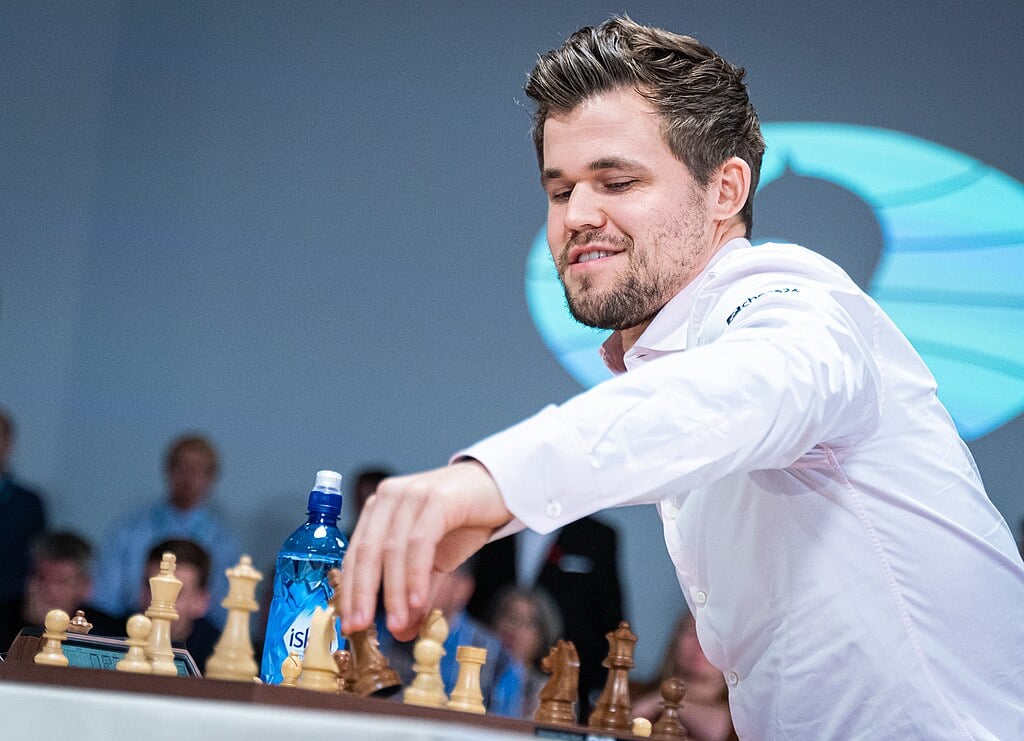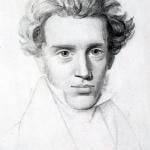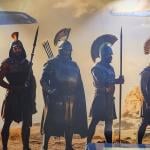
We now know that 143,000 minds are better than one.
Magnus Carlsen is ranked as the best chess player in the world. The Norwegian chess grandmaster, winner of five World Championships, has achieved the highest-ever chess rating of 2882. The 34-year-old has been the undisputed #1 in the world ever since he was 19.
The online chess site Chess.com figured out a way for Carlsen to take on the world. Anyone could sign up to be a part of Team World. Some 143,000 people from around the globe did so.
Collectively, they would play Carlsen. They did so by voting on every move. Everybody had 24 hours to cast their vote. The move that received the most votes would be played.
The match began on April 4 and lasted just over a month. Chess.com predicted that Carlsen would win easily. But on the 32nd move, Team World forced Carlsen into a draw.
OK, we now know that 143,000 minds are, if not better, at least as good as one who is the best at his game. A draw in chess, especially against a player like Carlsen, is a moral victory of the first order.
Somehow, the collaboration of 143,000 different players, for all of their different opinions about moves and tactics, stalemated the Grand Master.
(Read about the match in the AP story Chess grandmaster Magnus Carlsen is forced into a draw in a showdown against ‘the world.’)
This strikes me as evidence that democracy can work.
I suspect that the reason Team World played so well against the single best player in the world is that the 143,000 minds could bring different perspectives to bear, with some individuals recognizing potential dangers or possibilities that a single individual would not notice. If the 143,000 formed just two parties, one of which was committed to the tactic of Queen’s Gambit and the other to the Sicilian Defense (I don’t know what either of those mean) and everyone was pressured to follow one or the other, Carlsen would probably have made short work of the World.
Similarly, our democracy is weakened by conformity to one party or the other. Instead of drawing on 174 million voters with 174 million perspectives, all 174 million are given a choice between two perspectives, as defined by a small group of professional politicians.
But there really is such a thing as collective wisdom. One way to tap into that is to consider the significance of tradition. After all, as Chesterton has pointed out, tradition is nothing more than the democracy of the dead.
From G. K. Chesterton, Orthodoxy, Chapter 4:
I have never been able to understand where people got the idea that democracy was in some way opposed to tradition. It is obvious that tradition is only democracy extended through time. It is trusting to a consensus of common human voices rather than to some isolated or arbitrary record. . . .
If we attach great importance to the opinion of ordinary men in great unanimity when we are dealing with daily matters, there is no reason why we should disregard it when we are dealing with history or fable. Tradition may be defined as an extension of the franchise. Tradition means giving votes to the most obscure of all classes, our ancestors. It is the democracy of the dead. Tradition refuses to submit to the small and arrogant oligarchy of those who merely happen to be walking about.
All democrats object to men being disqualified by the accident of birth; tradition objects to their being disqualified by the accident of death. Democracy tells us not to neglect a good man’s opinion, even if he is our groom; tradition asks us not to neglect a good man’s opinion, even if he is our father.
Photo: Magnus Carlsen by Lennart Ootes, CC BY-SA 4.0 <https://creativecommons.org/licenses/by-sa/4.0>, via Wikimedia Commons












